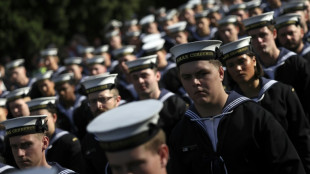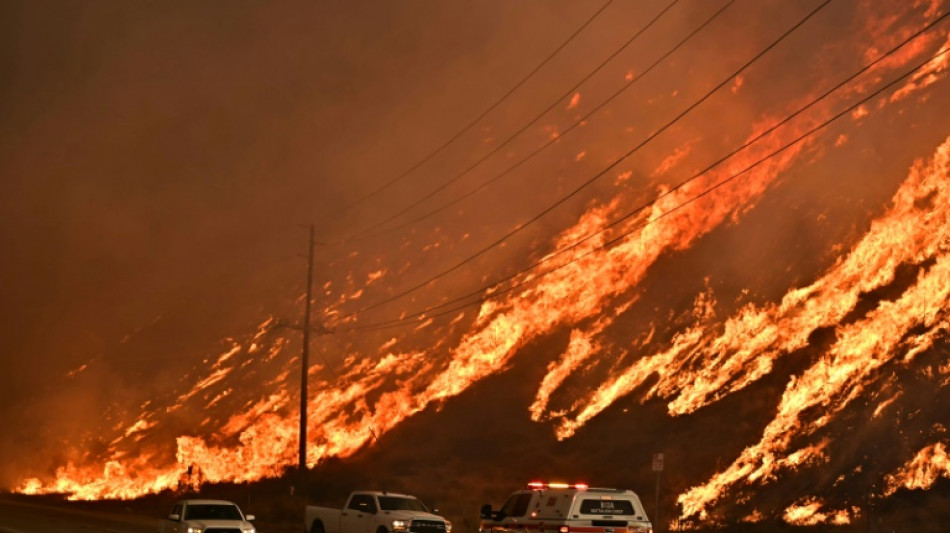
-
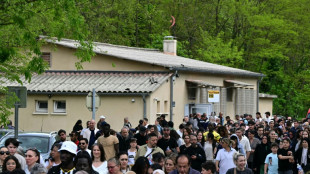 Religious hate has no place in France, says Macron after Muslim killed in mosque
Religious hate has no place in France, says Macron after Muslim killed in mosque
-
Last day of Canada election campaign jolted by Vancouver attack

-
 Barcelona crush Chelsea to reach women's Champions League final
Barcelona crush Chelsea to reach women's Champions League final
-
Nine killed as driver plows into Filipino festival in Canada
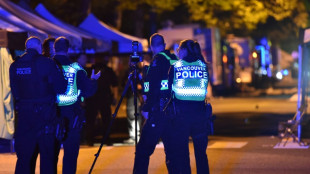
-
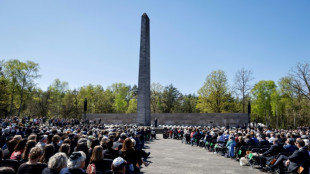 Germany marks liberation of Bergen-Belsen Nazi camp
Germany marks liberation of Bergen-Belsen Nazi camp
-
Hojlund strikes at the death to rescue Man Utd in Bournemouth draw

-
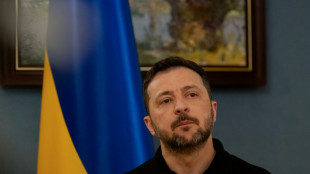 Zelensky says Ukraine not kicked out of Russia's Kursk
Zelensky says Ukraine not kicked out of Russia's Kursk
-
Zverev, Sabalenka battle through in Madrid Open, Rublev defence over

-
 Ruthless Pogacar wins Liege-Bastogne-Liege for third time
Ruthless Pogacar wins Liege-Bastogne-Liege for third time
-
Bumrah claims 4-22 as Mumbai register five straight IPL wins
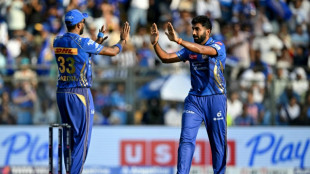
-
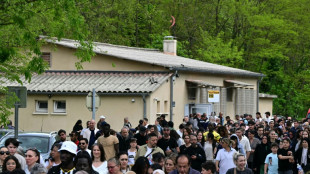 No place for racism, hate in France, says Macron after Muslim killed in mosque
No place for racism, hate in France, says Macron after Muslim killed in mosque
-
Greenland leader says Trump's threats disrespectful
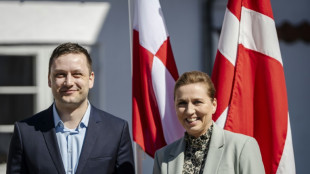
-
 Spain's Alex Marquez celebrates maiden MotoGP in home Grand Prix
Spain's Alex Marquez celebrates maiden MotoGP in home Grand Prix
-
Iran's president visits site of port blast that killed 28
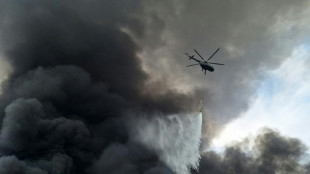
-
 French rapper Jul breaks attendance record at national stadium
French rapper Jul breaks attendance record at national stadium
-
Gaza ministry says hundreds of war missing confirmed dead, toll at 52,243
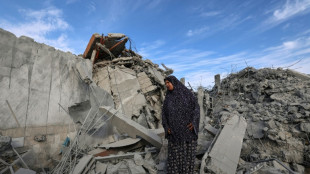
-
 Crowds flock to Pope Francis tomb, as eyes turn to conclave
Crowds flock to Pope Francis tomb, as eyes turn to conclave
-
'Godfather' director Coppola bags lifetime achievement award

-
 Assefa sets world record, Sawe destroys high class field in London marathon
Assefa sets world record, Sawe destroys high class field in London marathon
-
'No excuse': Real Madrid's Rudiger after throwing object at ref

-
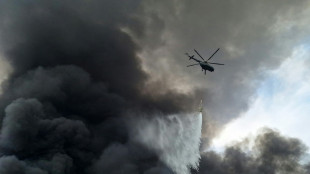 Fire blazes day after Iran port blast killed 28, injured 1,000
Fire blazes day after Iran port blast killed 28, injured 1,000
-
Real Madrid meltdown after third Clasico defeat inevitable end to ugly weekend

-
 Nine killed as driver plows into Vancouver festival crowd
Nine killed as driver plows into Vancouver festival crowd
-
Crumbs! Should French bakeries open on May 1?

-
 All eyes turn to conclave as Pope Francis tomb opens to public
All eyes turn to conclave as Pope Francis tomb opens to public
-
Emotional Penge bounces back from betting ban for first DP Tour win

-
 25 killed, 1,000 injured in huge Iran port blast
25 killed, 1,000 injured in huge Iran port blast
-
Greenland PM visits Denmark as Trump threats loom
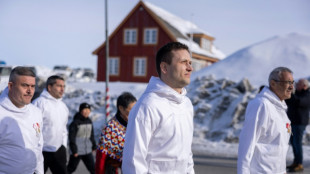
-
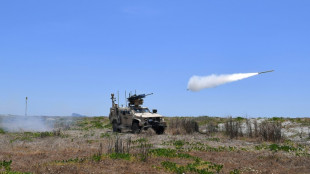 Philippines, US test air defences as China seizes reef
Philippines, US test air defences as China seizes reef
-
25 killed, fires still burning in huge Iran port blast

-
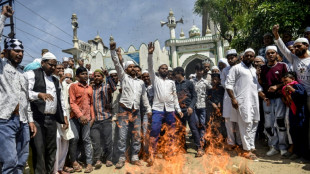 India and Pakistan troops exchange fire in Kashmir
India and Pakistan troops exchange fire in Kashmir
-
Eighteen killed, fires still burning in huge Iran port blast
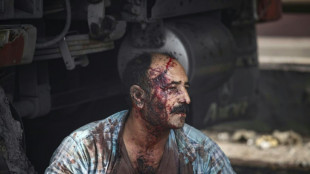
-
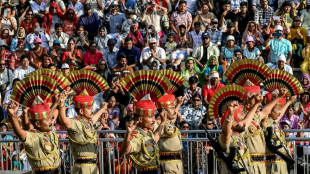 No handshake at muted India-Pakistan border ceremony
No handshake at muted India-Pakistan border ceremony
-
Maligned by Trump, White House reporters hold subdued annual gala

-
 Austria trials DNA testing to uncover honey fraud
Austria trials DNA testing to uncover honey fraud
-
Trump trade war pushes firms to consider stockpiling
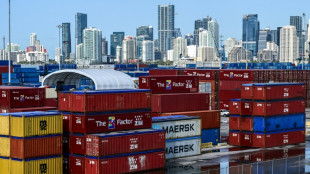
-
 D'Backs' Suarez becomes 19th MLB player to hit four homers in one game
D'Backs' Suarez becomes 19th MLB player to hit four homers in one game
-
Continuity or rupture: what direction for the next pope?
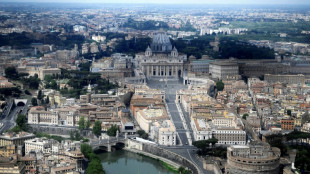
-
 Surridge scores four as Nashville smash seven past Chicago
Surridge scores four as Nashville smash seven past Chicago
-
Chinese tea hub branches into coffee as tastes change
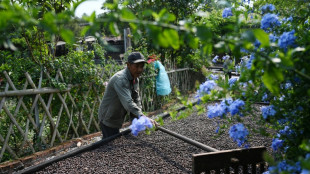
-
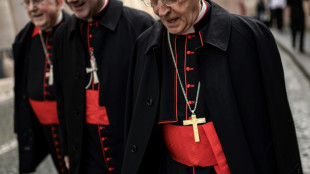 Diplomacy likely to trump geography in choice of new pope
Diplomacy likely to trump geography in choice of new pope
-
All eyes turn to conclave after Pope Francis's funeral
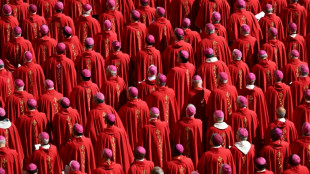
-
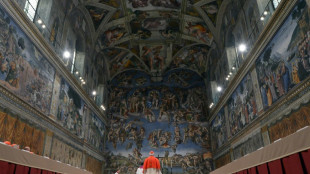 Doves, deaths and rations: Papal elections over time
Doves, deaths and rations: Papal elections over time
-
Progressive Canadians say social issues blown off election agenda
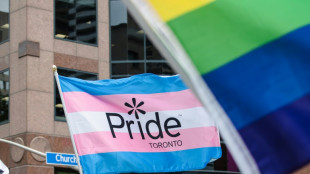
-
 Liverpool primed for Premier League title party
Liverpool primed for Premier League title party
-
Buenos Aires bids farewell to Francis with tears, calls to action
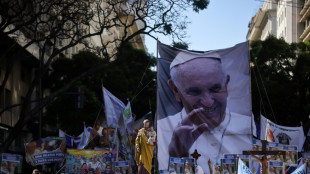
-
 Thunder sweep past Grizzlies in NBA playoffs, Cavs on brink
Thunder sweep past Grizzlies in NBA playoffs, Cavs on brink
-
Major blast at Iran port kills 14, injures 750
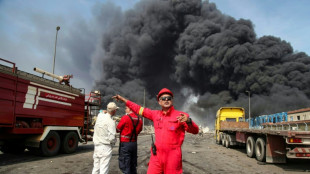
-
 'What we live for': Kounde after winning Barca Copa del Rey final
'What we live for': Kounde after winning Barca Copa del Rey final
-
More McIlroy magic at PGA pairs event but Novak and Griffin lead


The pioneering science linking climate to weather disasters
Extreme weather is becoming more destructive as the world warms, but how can we say that climate change intensified the fires in Los Angeles, typhoons in the Philippines, or flooding in Spain?
That question was once difficult question to answer. But thanks to the pioneering field of attribution science, experts can quickly examine the possible influence of global warming on a specific weather event.
The fast-growing field began two decades ago and is now firmly established, but it is still sometimes hampered by a lack of data.
- Real-world impact -
After disaster strikes, an attribution study can quickly help tell governments, industry and ordinary people if climate change played a role.
"It's important for citizens, for decision-makers, and it's also very important for scientists, because with each case study, we learn new things about our models, our observations and the problems we encounter with them," said Robert Vautard, a leading scientist with the UN's climate expert panel, who has supported the development of attribution studies.
In the future, these studies could also play a growing role in legal disputes.
Already a 2021 scientific study was used by a Peruvian farmer in his battle against German electricity giant RWE, which he accused of playing a role in the melting of a glacier.
That research found the glacier's retreat was "entirely attributable" to global warming.
- Different approaches -
The main questions attribution studies seek to answer are: did the warmer climate make a flood, heatwave, fire or storm more likely, and did it increase its ferocity?
Several groups have developed methods that have been independently validated by other researchers.
The most active and influential group of researchers is World Weather Attribution (WWA), whose work is often reported in the media.
Using computer models, scientists can compare a simulation of a particular weather event against a world in which warming caused by the burning of fossil fuels and other human activities was not present.
In their most recent study, WWA researchers found that climate change increased the risk of the Los Angeles wildfires, which have killed at least 29 people and destroyed more than 10,000 homes since igniting on January 7.
Tinderbox conditions fuelling the blazes were approximately 35 percent more likely due to global warming caused by burning fossil fuels, they found, reducing rainfall, drying out vegetation and extending the overlap between flammable drought conditions and powerful Santa Ana winds.
Other organisations running attribution studies include Britain's Met Office, which also compares today's climate with simulations of a world with a climate more like the one before the Industrial Revolution.
Yet others use more broad-brush techniques, including ClimaMeter, which describes itself as "an experimental rapid framework for understanding extreme weather events".
The group uses historical observational data, rather than more complex computer models, as well as news reports and AI tools like ChatGPT, although it admits that its method is less effective at analysing very unusual events.
- No single cause -
Scientists stress that climate change should not be considered the sole cause of an extreme event and its impacts.
"For instance, if a heavy smoker develops lung cancer, we would not say the cigarettes caused the cancer -- but we might say the damage caused by the cigarettes made it more likely," WWA explains on its website.
Researchers also look at political or social factors that make a weather disaster more deadly or destructive -- poor quality construction, for example, or badly maintained infrastructure.
Some types of extremes have a well-established link with climate change, such as heatwaves or heavy rainfall.
"More and more, we're starting to have events that we can clearly say would have had a near-zero probability without our influence on the climate," said Sonia Seneviratne, a climate scientist who has worked with WWA.
"Events are now becoming so extreme that it's easier to detect this influence," she notes.
Other phenomena like droughts, snowstorms, tropical storms and forest fires can result from a combination of factors and are more complex.
- Search for data -
Another limitation that worries researchers is the scarcity of observational data and measurements in certain parts of the world, particularly in Africa.
That dearth makes it harder to study impacts, leading to inconsistency between different analyses.
"The lack of observed data is penalising in certain regions. There is also a lack of model data, i.e. high-resolution climate simulations," said Aurelien Ribes, a climate scientist at the French meteorological research agency CNRM.
He stressed the need for consistency and said that "any future use of this data in legal or compensation proceedings will have to be based on more systematic approaches".
O.M.Souza--AMWN
